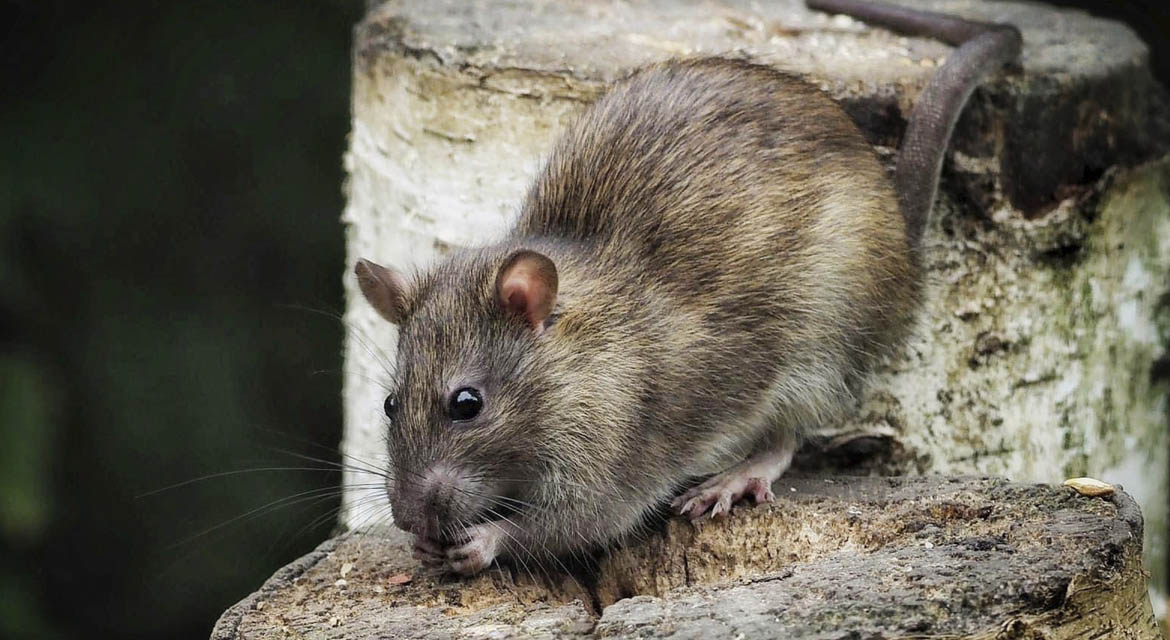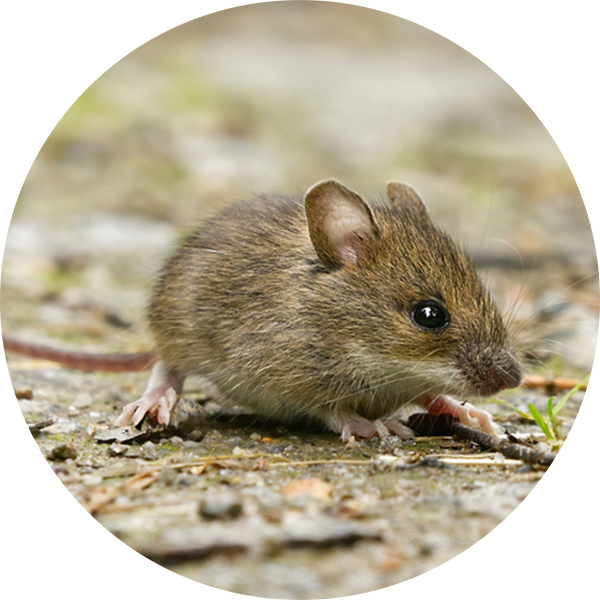
Rat Facts & Information
A rat infestation can pose significant risks and impacts on human health, property, and the environment. Rats can transmit diseases, cause damage to structures and wiring through gnawing, contaminate food and surfaces with their droppings, and contribute to a general sense of unease and discomfort.
Risks of Rats
Health Risks
Rats are known to carry and transmit various diseases that can be harmful to humans. They can contaminate food, surfaces, and utensils with their droppings, urine, and saliva, potentially spreading diseases such as leptospirosis, salmonellosis, hantavirus, and rat-bite fever. Rats can also introduce fleas, ticks, and mites into the infested area, which can further spread diseases and cause additional health risks.
Property Damage
Rats have strong teeth that continuously grow, leading them to gnaw on various materials to keep their teeth in check. This behavior can result in extensive property damage. Rats may chew through electrical wires, insulation, wood, plastic pipes, and even concrete, causing potential fire hazards, and structural damage, and compromising the integrity of buildings. Rats may also damage stored items, furniture, and other belongings.
Contamination and Odor
Rats contaminate their surroundings with their droppings, urine, and hair, which can contaminate food supplies and surfaces. The presence of rat feces and urine can pose a risk of disease transmission and create unsanitary conditions. Additionally, the infested area may develop a strong, unpleasant odor due to the accumulation of rat waste and the decomposition of dead rats, especially in hidden or hard-to-reach areas.
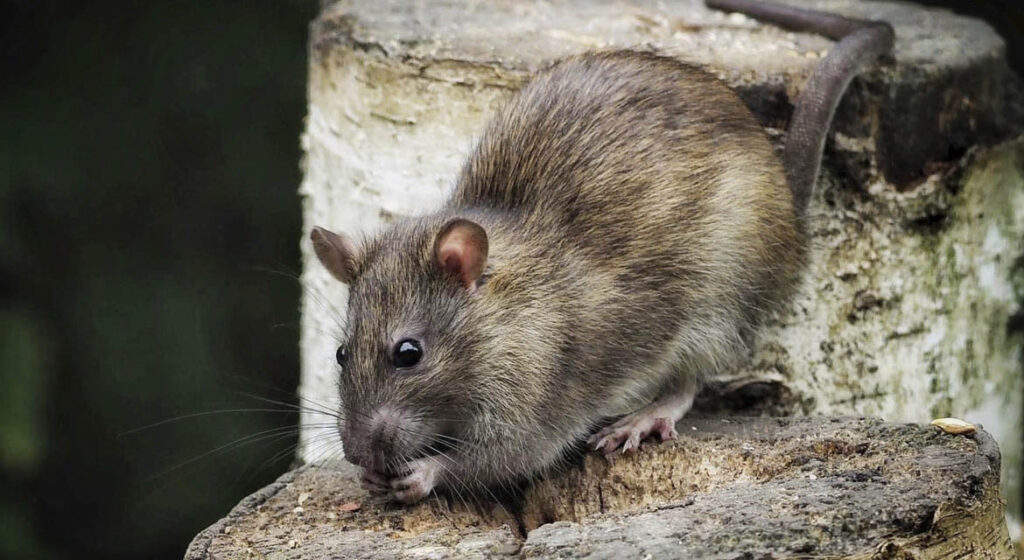
Truly Nolen GUARANTEE
If you’re not completely satisfied, you’ll get a full refund on your most recent service with our 100% money back guarantee.
Common Species of Rats
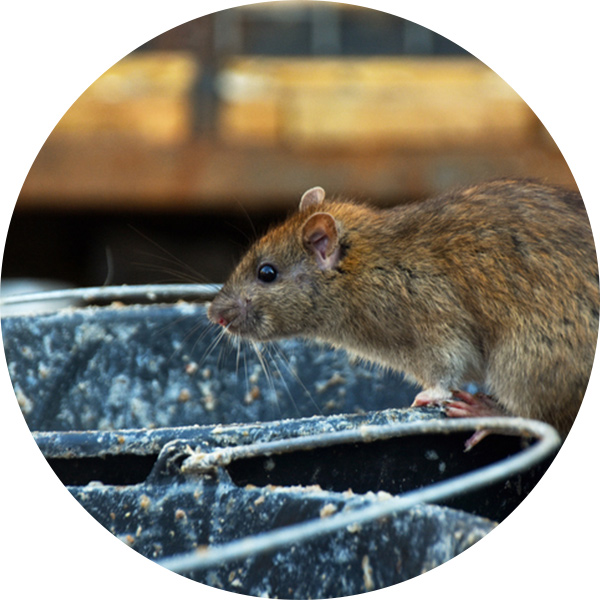
Norway Rat
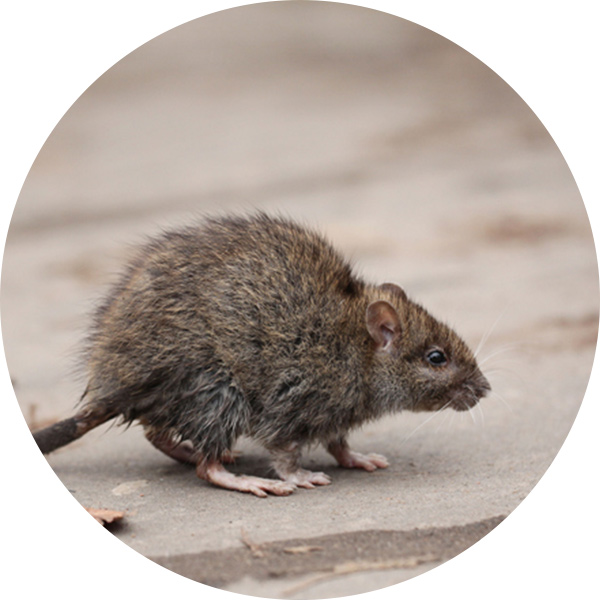
Roof Rat
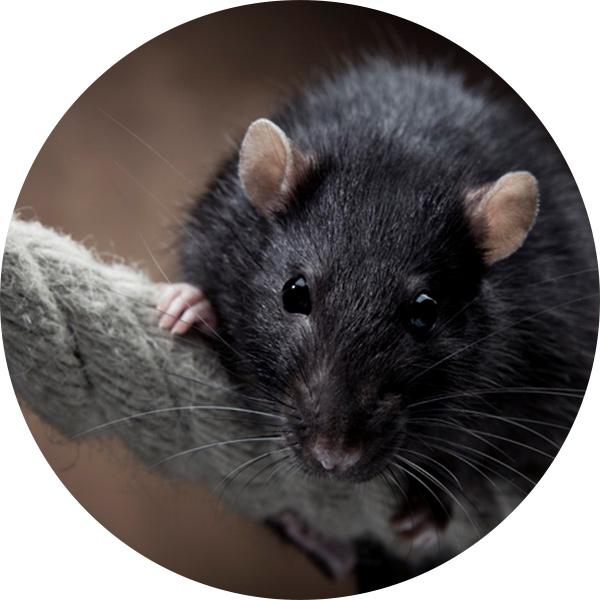
Black Rat
How To Identify Rats
Rats are large rodents known for their ability to adapt and thrive in various environments. They can cause damage to structures, contaminate food, spread diseases, and reproduce rapidly, making rat control and prevention essential for both residential and commercial settings.
Rat Appearance
Rats are larger than mice and have a pointed snout, long tail, and large ears. They have fur that can range in color from gray to brown, and their underbelly is usually a lighter color. Rats have larger, more prominent eyes than mice, and their tails are scaly and nearly hairless.
Rat Habitat
Rats are found throughout the world and are often found living in and around human habitats, such as homes, buildings, and farms. They are good climbers and can squeeze through very small openings to gain access to a building.
Rat Diet
Rats are omnivorous, meaning they eat both plants and animals. They feed on a variety of foods, including grains, seeds, fruits, and insects. They are also known to eat garbage and other waste products.
Rat Behavior
Rats are social animals and live in groups. They are active at night and spend most of their time searching for food. Rats have a very strong sense of smell, which they use to locate food and to communicate with other rats.
Rat Reproduction
Rats can reproduce quickly, and a female rat can have several litters per year. Rats are capable of breeding at a young age and can have litters of up to 14 or 15 pups. The pups are born blind and hairless and are completely dependent on their mother for the first few weeks of their lives.
Rat Prevention
Preventing rat infestations involves sealing any entry points or gaps in buildings, removing potential food and water sources, and maintaining cleanliness and proper sanitation practices. Regular inspections, proper storage of food and waste, and professional pest control measures can help effectively prevent rat infestations.
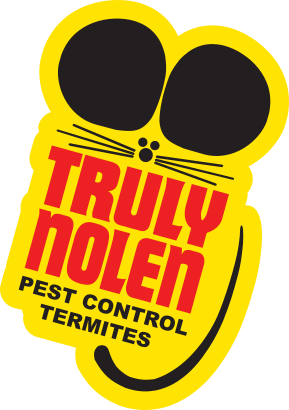
$50 Off Year Round Pest Control
Truly Nolen is a family-owned company with 85 years of experience providing the best pest control. If you’re not completely satisfied, you’ll get a full refund on your most recent service with our 100% money back guarantee.
The Truly Nolen Approach
Environmentally Conscious
We work to minimize our impact on the environment by using naturally occurring materials whenever possible.
Pet Friendly
Truly Nolen uses an Integrated Pest Management (IPM) approach designed with your pets in mind.
100% Money Back Guarantee
If you’re not completely satisfied, you’ll receive a full refund on your most recent service.
How Truly Nolen Gets Rid of Ants
Truly Nolen employs various rat pest control techniques to address infestations. Their trained technicians begin with a comprehensive inspection to identify rat entry points, nesting areas, and potential food sources. Based on the assessment, they implement a combination of strategies, including trapping, baiting, exclusion methods, and environmental modifications, to eliminate rats and prevent their return. Truly Nolen’s approach focuses on targeting the root causes of the infestation and implementing customized solutions for long-term rat control.
Frequently Asked Questions
How do I know if I have a rat infestation?
Signs of a rat infestation include droppings, gnaw marks on food packaging or structures, greasy rub marks along walls or baseboards, scampering or squeaking sounds at night, and sightings of live or dead rats. A professional inspection can help confirm the presence of rats. Learn More!
Are rats dangerous?
Rats can pose various risks. They can transmit diseases such as leptospirosis and salmonellosis, cause structural damage by gnawing on wires and wood, contaminate food and surfaces with their droppings and urine, and their presence can trigger allergies and asthma symptoms in some individuals. Learn More!
How do I prevent rats from entering my property?
Rat prevention measures include sealing any gaps or holes in the building’s exterior, keeping vegetation trimmed away from structures, storing food in sealed containers, properly disposing of garbage, and maintaining cleanliness and sanitation practices.
Can I get rid of rats on my own?
While DIY rat control methods may be effective for small infestations, larger or persistent infestations often require professional assistance. Pest control professionals have the expertise, tools, and knowledge to effectively eliminate rats and implement preventive measures.
How long does it take to get rid of a rat infestation?
The duration of rat control can vary depending on the severity of the infestation and the effectiveness of control measures. It typically takes several weeks to completely eliminate a rat infestation, but ongoing monitoring and preventive efforts are necessary for long-term control.

